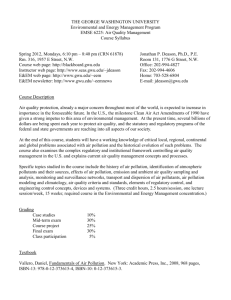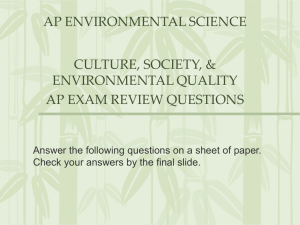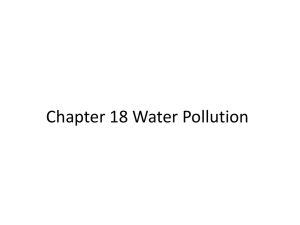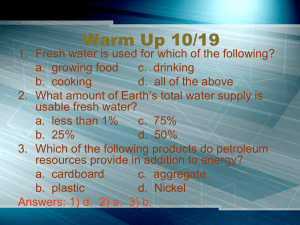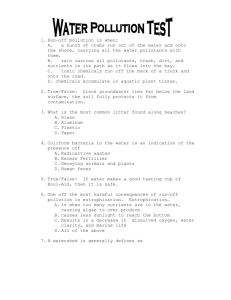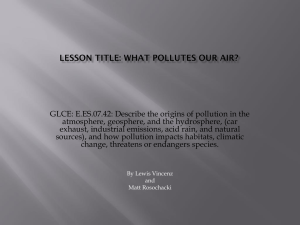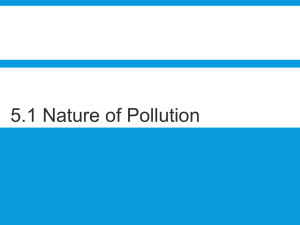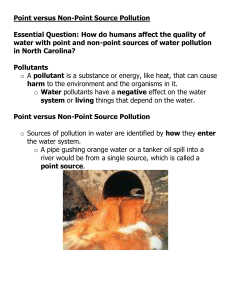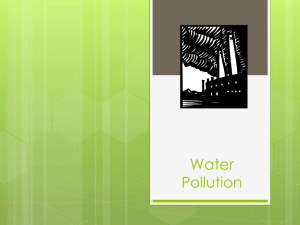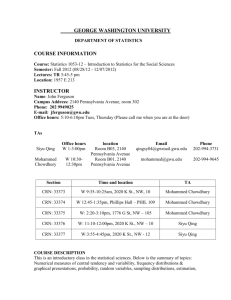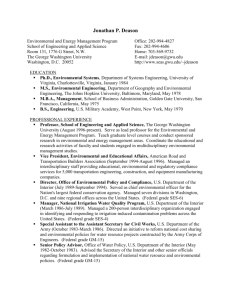sample syllabus - The George Washington University
advertisement
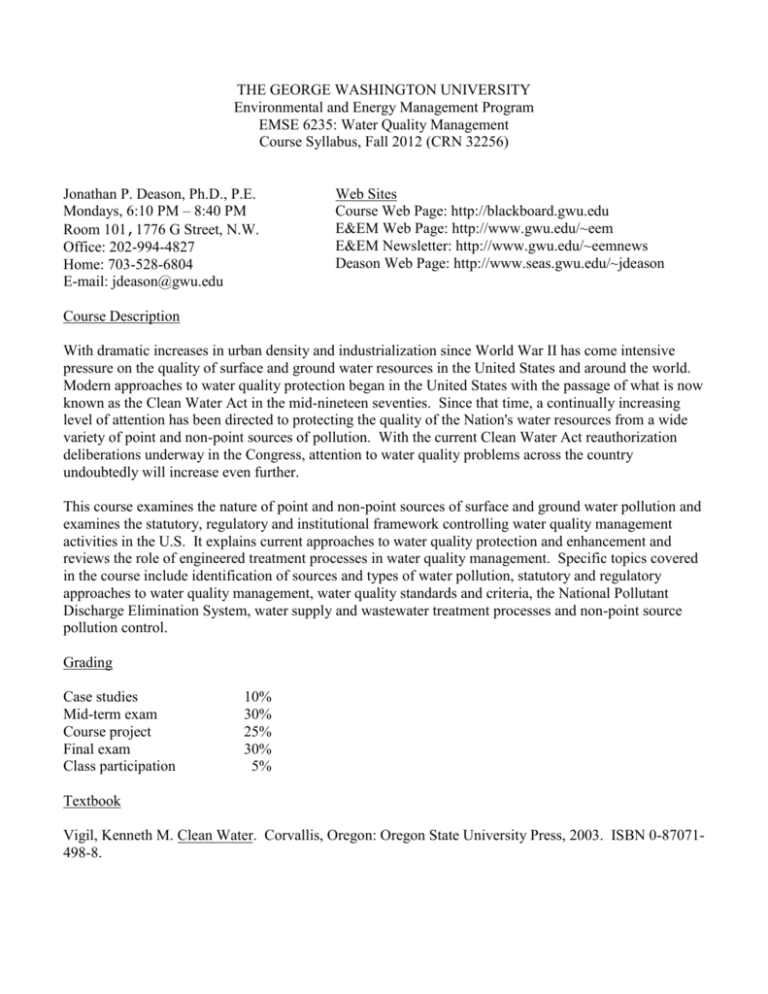
THE GEORGE WASHINGTON UNIVERSITY Environmental and Energy Management Program EMSE 6235: Water Quality Management Course Syllabus, Fall 2012 (CRN 32256) Jonathan P. Deason, Ph.D., P.E. Mondays, 6:10 PM – 8:40 PM Room 101,1776 G Street, N.W. Office: 202-994-4827 Home: 703-528-6804 E-mail: jdeason@gwu.edu Web Sites Course Web Page: http://blackboard.gwu.edu E&EM Web Page: http://www.gwu.edu/~eem E&EM Newsletter: http://www.gwu.edu/~eemnews Deason Web Page: http://www.seas.gwu.edu/~jdeason Course Description With dramatic increases in urban density and industrialization since World War II has come intensive pressure on the quality of surface and ground water resources in the United States and around the world. Modern approaches to water quality protection began in the United States with the passage of what is now known as the Clean Water Act in the mid-nineteen seventies. Since that time, a continually increasing level of attention has been directed to protecting the quality of the Nation's water resources from a wide variety of point and non-point sources of pollution. With the current Clean Water Act reauthorization deliberations underway in the Congress, attention to water quality problems across the country undoubtedly will increase even further. This course examines the nature of point and non-point sources of surface and ground water pollution and examines the statutory, regulatory and institutional framework controlling water quality management activities in the U.S. It explains current approaches to water quality protection and enhancement and reviews the role of engineered treatment processes in water quality management. Specific topics covered in the course include identification of sources and types of water pollution, statutory and regulatory approaches to water quality management, water quality standards and criteria, the National Pollutant Discharge Elimination System, water supply and wastewater treatment processes and non-point source pollution control. Grading Case studies Mid-term exam Course project Final exam Class participation 10% 30% 25% 30% 5% Textbook Vigil, Kenneth M. Clean Water. Corvallis, Oregon: Oregon State University Press, 2003. ISBN 0-87071498-8. SCHEDULE AND ASSIGNMENTS Session Topics Assignments 1 Sept 10 Introduction to Water Quality Management. Introductions; Discussion of Course Requirements; Overview of Water Quality Management; Components of Hydrologic Systems Read Introduction and Chapter 1 (The Hydrologic Cycle) 2 Sep 17 Status and Trends of Water Quality. Surface Water; Ground Water; Drinking Water Read Chapter 2 (Water Chemistry and Microbiology) Turn in: project proposals 3 Sep 24 Sources and Effects of Water Pollution I. History of Water Pollution; Toxic Metals and Other Inorganic Pollutants; Organic Pollutants Read Chapter 3 (Sources of Water Pollution) 4 Oct 1 Sources and Effects of Water Pollution II. Nutrients; Microorganisms; Thermal Effects “ 5 Oct 8 Sources and Effects of Water Pollution III. Atmospheric Deposition of Surface Water Pollutants; Irrigation-Induced Contamination and Other Non-Point Source Water Pollutants “ 6 Oct 15 Presentations and Review. Project Progress Report Presentations; Review for Mid-Term Examination 7 Oct 22 Mid-Term Examination 8 Oct 29 Water Quality Surveillance. Water Quality Monitoring and Modeling 9 Nov 5 Statutory and Regulatory Approaches to Water Quality Management I. Clean Water Act Read Chapter 5 (Water Quality Regulations) 10 Nov 12 Statutory and Regulatory Approaches to Water Quality Management II. Safe Drinking Water Act; Other Statutory Read Chapter 6 (The Watershed Approach) 2 and Regulatory Provisions Pertaining to Water Quality Management and Chapter 7 (Drinking Water) 12 Nov 19 Engineered Water Quality Control Read Chapter 4 Measures I. Sources of Water Supplies; Water Transmission; (Preventing Water Physical and Chemical Treatment Processes for Water Supply Pollution) 13 Nov 26 Engineered Water Quality Control Measures II. Wastewater Characteristics; Wastewater Collection Facilities; Wastewater Pretreatment; Primary, Secondary and Tertiary Treatment Technologies; Project Final Report Presentations Read Chapter 8 (Getting Personal About Clean Water) 14 Dec 3 Presentations and Review. Project Final Report Presentations; Review for Final Examination Turn in: Project Final Reports Dec 10 Class Make-up Day (no class) 15 Dec 17 Final Examination. 3
